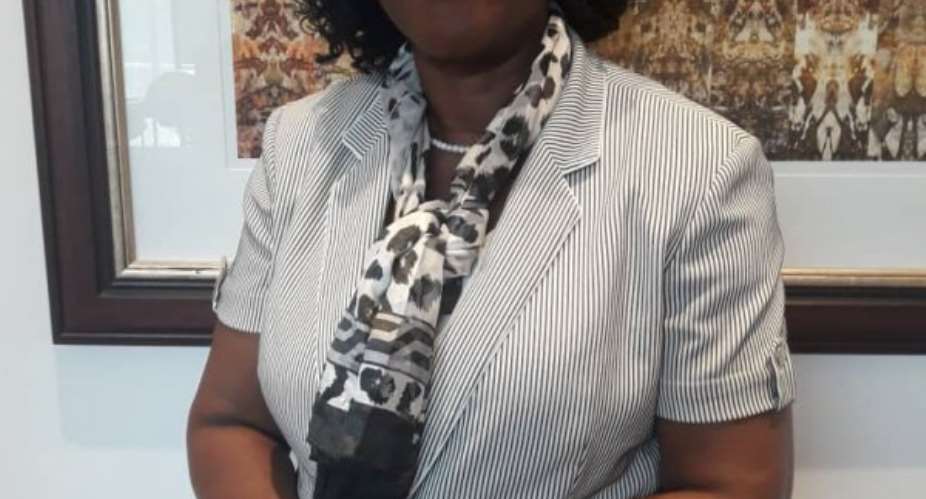Women in Poultry Value Chain (WIPVaC) has called for the speedy implementation of the Economic Community of West African States (ECOWAS) Veterinary Pharmacy Protocol in the country.
The group, which is an umbrella organisation of women poultry value chain actors, believe that supporting the implementation of the ECOWAS Veterinary Pharmaceutical Protocol will allow Ghana's livestock sector actors to prioritise action that safeguards the development of the livestock value chain.
The National President of the apex body of Women in Poultry Value Chain (WIPVAC-Apex), Mrs. Victoria Norgbey said the government's agricultural productivity programmes such as the Rearing for Food and Jobs stand to increase its impact following the implementation of the protocol.
“Animal health is human health; hence the speedy implementation of the protocol is paramount to the health of consumers and the time is now,” she said.
She explained that as the world was increasingly inter-connected, emerging and re-emerging animal diseases in one country can potentially constitute a threat to global health security and therefore the lack of appropriate policy response mechanisms makes the sector vulnerable to morbidity and mortality and puts pressure on health systems.
It will also lead to significant economic loses to countries by way of losing animal trade, travel and loss of economic opportunities.
During its 65th Ordinary Session of the Council of Ministers held in 2010, the ECOWAS created and set rules, establishing Community Procedures for Management of Veterinary Drugs and Biologicals.
The directive on ECOWAS Veterinary Pharmacy and Regulation appreciates the fact that handling of veterinary drugs and biological issues is not homogenous in the region and there was the need to harmonise legislations and regulations in the region to properly address animal production and health challenges.
Seven countries in the Sub-Region, Burkina Faso, Cote D'Ivoire, Liberia, Mali, Sierra Leone, Senegal and Togo, have gazetted the harmonized regulations on Veterinary drugs and biologicals quality control.
Three other countries; Gambia, Niger and Ghana, are in the process of gazetting the harmonized regulations.
In Ghana, the Protocol was presented to Parliament June 13, 2017 and was ratified on February 1, 2018 but implementation has since delayed due to key recommendations made by Parliament to be carried out, including; the enactment and update of animal production and veterinary laws to align with the protocol.
Mrs. Norgbey said speedy and effective implementation of the protocol was critical because it would safeguard the interest of livestock farmers, veterinary authorities and the public against adulteration, misleading claims and inappropriate use of veterinary products, which also affected human health.
It will also facilitate inter and intra-state trade in veterinary drugs and biologicals through implementation of principles and rules mutually agreed at sub-regional level to dismantle trade barriers.
She said it would also help facilitate local production of quality veterinary drugs and biologicals, facilitate timely and convenient access by livestock farmers and veterinary authorities to quality veterinary drugs and biologicals and encourage private investment in the veterinary drugs and biologics industry.
The group has since last year done a number of advocacy activities and public sensitization for the speedy implementation of the ECOWAS Veterinary Pharmaceutical Protocol in Ghana.
It received sponsorship from the BUSAC Fund and its donors, DANIDA and USAID, as well as, USDA-Ghana Poultry Project for the advocacy project.
Mrs Norgbey explained that WIPVAC's work involved establishing a livestock sector coordination unit to harmonise the advocacy that is reviewing the status of the protocol and carrying out stakeholder consultations and dialogue sessions.
—GNA





 Tuesday’s downpour destroys ceiling of Circuit Court '8' in Accra
Tuesday’s downpour destroys ceiling of Circuit Court '8' in Accra
 SOEs shouldn't compromise on ethical standards, accountability – Akufo-Addo
SOEs shouldn't compromise on ethical standards, accountability – Akufo-Addo
 Father of 2-year-old boy attacked by dog appeals for financial support
Father of 2-year-old boy attacked by dog appeals for financial support
 Jubilee House National Security Operative allegedly swindles businessman over sa...
Jubilee House National Security Operative allegedly swindles businessman over sa...
 Nobody can order dumsor timetable except Energy Minister – Osafo-Maafo
Nobody can order dumsor timetable except Energy Minister – Osafo-Maafo
 Mahama wishes National Chief Imam as he clock 105 years today
Mahama wishes National Chief Imam as he clock 105 years today
 J.B.Danquah Adu’s murder trial: Case adjourned to April 29
J.B.Danquah Adu’s murder trial: Case adjourned to April 29
 High Court issues arrest warrant for former MASLOC Boss
High Court issues arrest warrant for former MASLOC Boss
 Align academic curriculum with industry needs — Stanbic Bank Ghana CEO advocates
Align academic curriculum with industry needs — Stanbic Bank Ghana CEO advocates
 Election 2024: We'll declare the results and let Ghanaians know we've won - Manh...
Election 2024: We'll declare the results and let Ghanaians know we've won - Manh...
